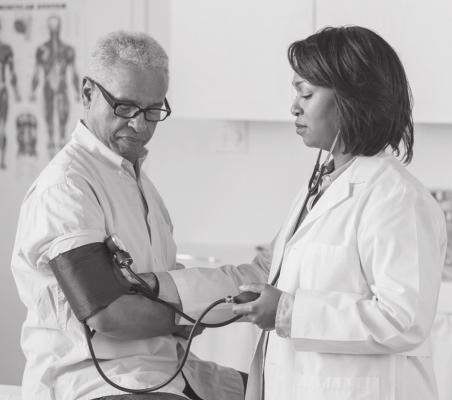What is High Blood Pressure Medicine?
Your health care professional has prescribed medicine to help lower your blood pressure. Depending on your risk and blood pressure levels, you may need one or more types of medicine to keep your blood pressure at a healthy level. You may have to see your health care professional often until your blood pressure is under control. Every person reacts differently to medication. You may need a trial period before your doctor finds the best medication, or combination of medications, for you.
What should I know about high blood pressure medication?
• Different medications work in unique ways to help lower your blood pressure.
• HBP medication only works when you take it as prescribed.
• Medication shouldn’t be stopped without your health care professional’s approval.
• Even after your blood pressure is lowered, treatment usually continues for your lifetime to keep your blood pressure normal.
What types of medication may be prescribed?
One or more of these medications are initially used to treat high blood pressure:
• Diuretics – help control blood pressure by removing excess sodium (salt) and water from your body through urination. These are sometimes called “water pills.”
• Angiotensin-converting enzyme (ACE) inhibitors, angiotensin II receptor blockers (ARBs) and calcium channel blockers – relax and open up the narrowed blood vessels and lower blood pressure.
What are the side effects?
Some HBP medications can affect certain body functions. This may result in side effects. But the benefits of using them outweigh the risk of side effects in most people.
Some of the common side effects that may occur include:
• Weakness, tiredness or drowsiness
• Erectile dysfunction
• Trouble sleeping
• Slow or fast heartbeat
• Skin rash
• Feeling thirsty
• Cough
• Muscle cramps
• Headache, dizziness or light-headedness
• Constipation or diarrhea
If you are having side effects, don’t stop taking your medication to avoid them. Your health care professional can work with you to find the medication or dose that works best for you.
How can I remember to take my medication?
Sometimes it’s hard to keep track of your medication. But to be safe, you must take it properly. These are some good ways:
• Take your medicine at the same time each day.
• Take medicine along with daily events such as brushing your teeth.
• Use a weekly pill box with separate sections for each day or time of day.
• Ask family and friends to help remind you.
• Use a medicine calendar.
• Set a reminder on your smartphone.
HOW CAN I LEARN MORE?
• Call 1-800-AHA-USA1 (1-800-242-8721), or visit heart.org to learn more about heart disease and stroke.
• Sign up for our monthly Heart Insight e-news for heart patients and their families at HeartInsight.org.
• Connect with others sharing similar journeys with heart disease and stroke by joining our Support Network at heart.org/SupportNetwork.
Do you have questions for your doctor or nurse?
Take a few minutes to write down your questions for the next time you see your health care professional.
For example:
Should I avoid any foods or medicines?
What reactions or side effects should I expect?


